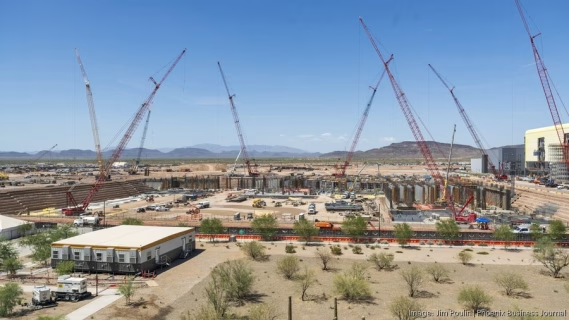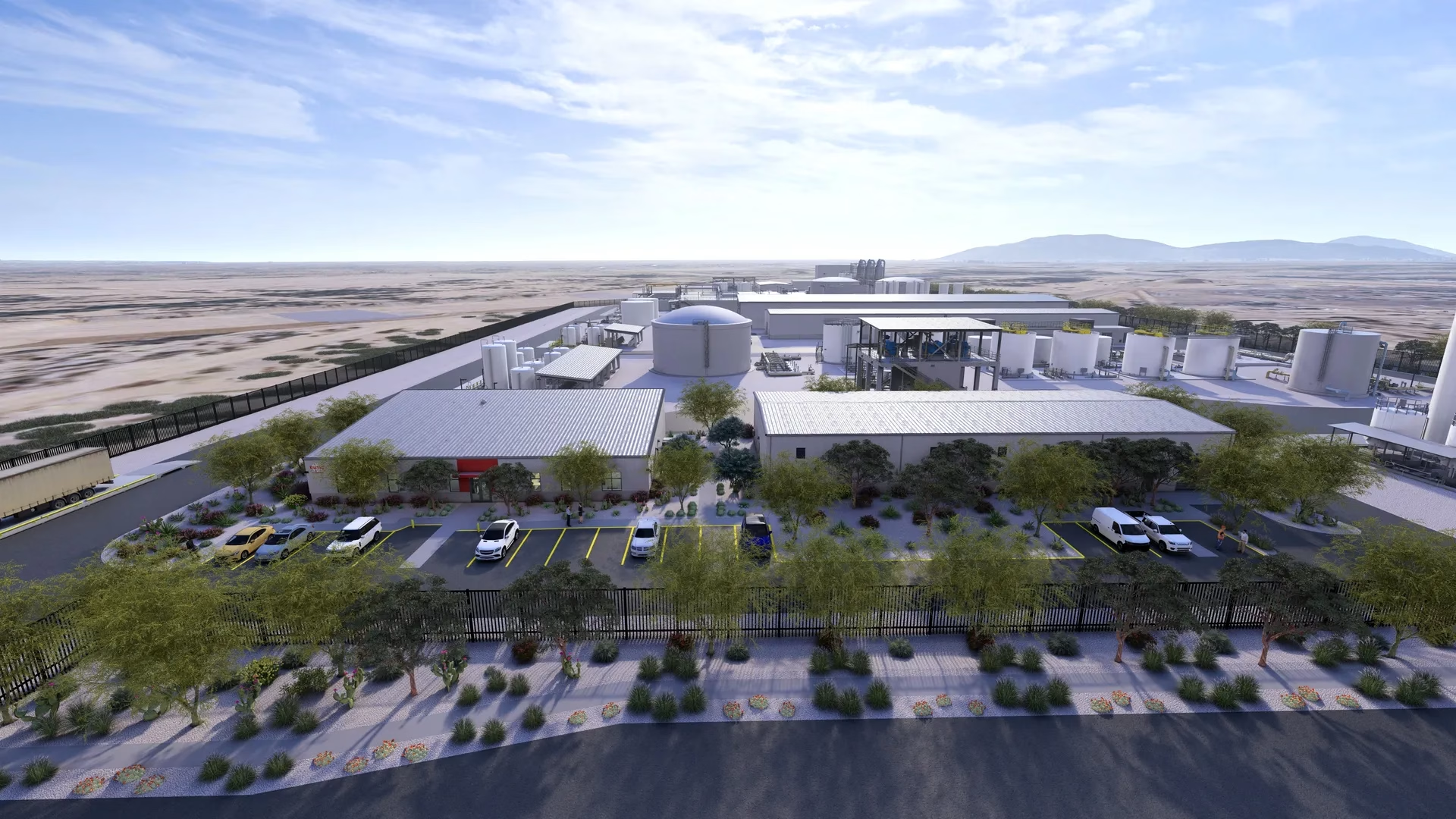Taiwan Semiconductor Manufacturing Co. (TSMC) has begun construction on a 15-acre Industrial Reclamation Water Plant (IRWP) at its manufacturing campus in north Phoenix. The facility, which broke ground this month, will drastically reduce wastewater discharge and allow the company to recycle nearly all water used in its semiconductor fabrication operations.
Upon startup, the IRWP will have the capacity to recycle around 85% of the site’s industrial wastewater, with the goal to push that percentage to 90% or higher. The recycled water will be “ultrapure,” a requirement in chipmaking where even tiny particles can damage wafers, particularly in new technologies such as the 4-nanometer chips to be produced at TSMC Arizona.
TSMC Arizona today recycles around 65% of its water through an on-site plant that serves non-production systems like air scrubbers and cooling towers. The new facility, however, will take water recycling directly into the manufacturing process by recycling wastewater back into the ultrapure grade required for wafer cleaning, complementing regional semiconductor growth led by developments such as the Amkor $7 billion semiconductor packaging campus in Peoria, Arizona.
Together, these projects underscore Arizona’s growing role as a strategic hub for semiconductor manufacturing and sustainability innovation. By integrating advanced recycling systems and local supply chain capabilities, both TSMC and Amkor are helping to secure the region’s technological future while reducing environmental impact, a move that strengthens U.S. resilience in the global chip industry.
TSMC Arizona President Rose Castanares addressed the company’s long-term sustainability commitment in the state. “One of the factors that drew us to Phoenix was the state and city’s smart, long-term water planning. We understand that water is a valuable resource here, and our near-zero discharge facility demonstrates our commitment to conservation and to being a responsible corporate neighbor,” she said.
Designed for future expansion
The IRWP will initially serve TSMC Arizona’s first two fabs and come online in 2028. The facility was designed with expansion in mind as well to serve future chip plants on the site. By reducing the consumption of municipal water, TSMC aims to help ease pressure on Phoenix’s long-term water supply while still supporting economic and industrial growth. TSMC’s first Phoenix fab began high-volume production in Q4 2024. And the company completed the structure for its second fab in 2025. Earlier this year (April 2025) TSMC also broke ground on the third fab at the same north Phoenix site.
TSMC has experience with this type of project. In 2022, it was the first in the world to use industrial-grade recycled water in advanced semiconductor manufacturing in its Taiwan fabs. The Arizona factory borrows a page from that book while adapting it to the region’s distinct water profile, particularly Phoenix’s higher magnesium and calcium content.

The company’s global water stewardship program is aligned with the United Nations Sustainable Development Goals and targets a water-positive rate of more than 65% by 2030. A “water positive” approach goes beyond conservation — it seeks to improve water quality, restore local resources, and return more water than is consumed. In the U.S., 2025 has seen a rise in water infrastructure modernization projects, including the Rothschild Dam Modernization Project in Wisconsin, upgrades and expansion by the North Texas Municipal Water District, and the Lake Michigan water pipeline project, among others.
TSMC Arizona Water Recycling Facility (IRWP): Project Factsheet
Location: TSMC manufacturing campus, North Phoenix, Arizona
Project Size: 15 acres
Construction Status: Ground broken (current month)
Expected Operational Date: 2028
Facility Capabilities
Water Recycling Performance:
Initial capacity: 85% of industrial wastewater reuse
Target capacity: 90%+ wastewater reuse
Current baseline: 65% recycling (existing in-house facility)
Water Quality Standards:
Produces “ultrapure” water meeting semiconductor manufacturing requirements
Suitable for 4-nanometer chip production wafer cleaning processes
Adapted for Phoenix’s higher magnesium and calcium content
Operational Scope
Primary Function: Convert industrial wastewater into ultrapure water for direct use in semiconductor manufacturing processes
Service Area: Initially supports TSMC Arizona’s first two fabrication facilities
Expansion Capability: Designed for future expansion to serve additional chip plants at the site
Discharge Impact: Near-zero wastewater discharge to municipal systems

Leave a Reply